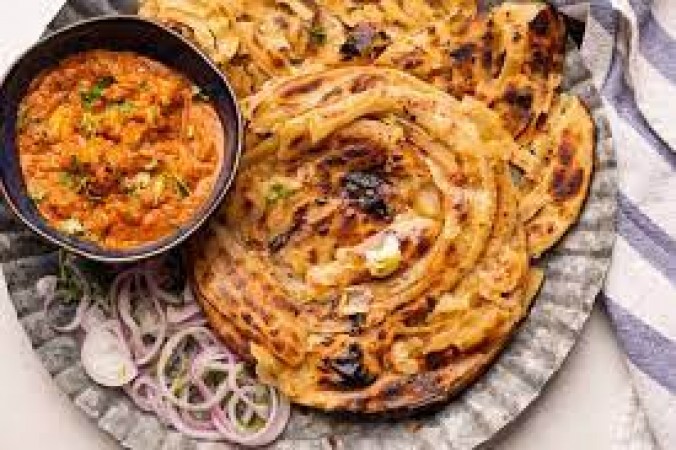
When it comes to enhancing the flavor and texture of parathas, the choice between butter and ghee can spark lively discussions among food enthusiasts. Both ingredients bring their unique qualities to the table, but which one reigns supreme in the realm of paratha perfection? Let's dive into the buttery world of paratha preparation and uncover the secrets behind these two culinary contenders.
Butter, with its creamy richness and distinct taste, has long been a beloved companion to many dishes, including parathas. Its smooth texture and subtle saltiness can elevate the flavor profile of any paratha, adding a hint of indulgence to each bite. Whether slathered generously on the dough or drizzled lightly over the cooked paratha, butter brings a comforting familiarity to the dining experience.
One of the key advantages of using butter in paratha preparation is its melting point. As the paratha cooks on the hot griddle or skillet, the butter gradually melts, infusing the layers of dough with its irresistible richness. This process creates a delectable fusion of flavors, ensuring that each bite is infused with buttery goodness.
Moreover, butter possesses a distinctive aroma that tantalizes the senses and enhances the overall dining experience. The warm, nutty fragrance of melted butter wafting through the air is enough to whet anyone's appetite, promising a culinary delight with every bite of the butter-cooked paratha.
On the other hand, ghee, often referred to as clarified butter, boasts its own set of virtues that make it a formidable competitor in the realm of paratha preparation. Made by simmering butter and removing the milk solids, ghee offers a pure and concentrated form of buttery goodness that lends a luxurious touch to any dish, including parathas.
Ghee's unique production process results in a rich, nutty flavor that sets it apart from traditional butter. When used in paratha cooking, ghee imparts a deep, caramelized taste to the dough, elevating its flavor profile to new heights. The intense richness of ghee adds complexity and depth to each bite, creating a truly indulgent culinary experience.
Furthermore, ghee is celebrated for its nutritional benefits, containing essential fatty acids and fat-soluble vitamins that promote overall well-being. While it is higher in calories compared to butter, ghee offers a range of healthful nutrients that contribute to a balanced diet when consumed in moderation.
In the end, the choice between butter and ghee ultimately boils down to personal preference and culinary experimentation. Both ingredients possess their own unique attributes that can enhance the flavor and texture of parathas in delightful ways. Whether you opt for the creamy richness of butter or the golden elegance of ghee, rest assured that your parathas will be infused with irresistible flavor and charm. In the timeless debate of butter versus ghee for paratha preparation, there is no clear winner—only a world of culinary possibilities waiting to be explored. Whether you prefer the familiar comfort of butter or the luxurious allure of ghee, experimenting with different ingredients can lead to delightful discoveries in the kitchen. So go ahead, indulge your taste buds and savor the double delight of perfectly cooked parathas, whether adorned with butter or ghee.
If you want to look stylish in office, then definitely carry these 5 types of accessories
These hairstyles of Deepika will be perfect from office to party
If you have such stylish sleeves on your suit, you will get a perfect look